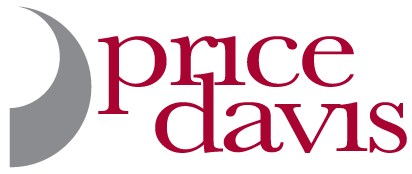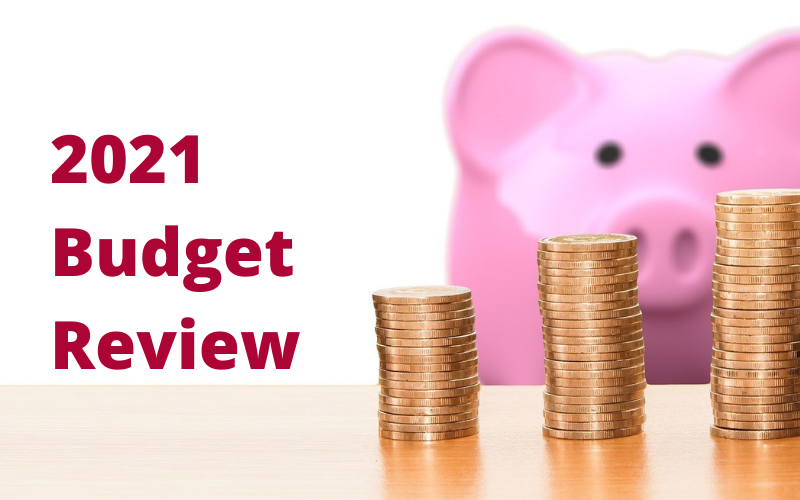There has been an increasing level of expectation on the 2021 budget among many who have been suffering as a result of the pandemic and other factors, particularly among many of the 3 million forgotten self-employed individuals who have thus far received little to no financial support throughout the pandemic.
Ahead of the budget announcement, there was much speculation surrounding how the vast level of government spending throughout the pandemic was going to be paid back.
During what will no doubt be a historical moment for the UK economy, we take a look through some of the announcements made by Rishi Sunak, and what that might mean for our clients.
Personal & Income Tax
Pension Lifetime Allowance
The lifetime limit is the total amount of savings an individual can accrue throughout their lifetime before savings become taxable. Proposals will be introduced removing the annual link to the allowance increasing with inflation for the next five years, maintaining the standard Lifetime Allowance at £1,073,100 until the 2025/26 tax year.
National Living Wage Increases
From the 1st April there will be increases to the National Living Wages. See table below:
|
Age |
National Living Wage | 21-22 | 18-20 | 16 & 17 |
Apprenticeships |
| £8.91 | £8.36 | £6.56 | £4.62 |
£4.30 |
Personal Income Tax
There will be no rise to income tax, however, the personal allowance threshold is being frozen until 2026.
Typically, the personal allowance before tax on income is due increases incrementally in line with inflation. Freezing the personal allowance – currently £12,570 for the lower tax rate and £50,270 for the higher tax rate – means that an individuals ‘take home’ pay will not decrease, however, over time workers will end up paying more in income tax due to the threshold not increasing as it would have with inflation.
Capital Gains Tax
No changes were announced at the 2021 budget on GCT rates meaning the rates will remain at 10% for those in the basic rate tax band, and 20% for those in the higher tax band.
Higher rates of 18% and 28% may apply for certain gains; but we will cover these in a separate blog – watch this space –
Inheritance Tax
Since 2009 the ‘nil rate’ band has been frozen at £325,000 and will continue to be frozen until 2026.
The additional nil rate band – referred to as the ‘Residence Nil Rate Band’ – which had previously increased in stages will also be frozen at £175,000 until 05 April 2026.
Stamp Duty Extension
Sales up to the value of £500,000 will pay no stamp duty on completions before 30th June 2021.
From 1st July – end of September no stamp duty payable for sales up to £250,000.
The usual level of stamp duty will resume on sales over £125,000 for completions after 1st October 2021.
Employment Changes
Coronavirus Job Retention Scheme
The Coronavirus Job Retention Scheme – commonly known as furlough – will be extended until the end of September 2021.
80% of an employee’s usual salary will be guaranteed for any hours not worked without employer contributions necessary until July when employers will need to contribute 10% of the employee’s wages, which will increase again to 20% from August.
Kickstart Scheme
The government’s apprenticeship incentive payments will be doubled to £3,000 for new hires of any age to encourage more businesses to take on apprentices.
Lifetime Skills Guarantee
An introduction of a scheme encouraging workers to retrain or ‘upskill’. This scheme involves the government fully funding level 3 qualifications.
Business Support
Corporation Tax
Rishi Sunak’s 2021 budget is set to increase corporation tax for the first time since 1974.
Corporation tax levied against company profits is set to increase from the current rate of 19% to 25% in April 2023.
In a move that brings the Corporation tax model more in line with the Income tax model, the new main rate of Corporation Tax of 25% will only apply to those companies making over £250,000 of profit, while the current 19% CT rate will become a ‘small profits rate’ applied to businesses making profit of £50,000 or less. Companies with profits between £50,000 and £250,000 will pay the main rate of 25% reduced by a marginal relief that provides a gradual increase in the effective corporation tax rate.
“That means only 10% of all companies will pay the full higher rate”
Business Rates Holiday
The 100% rates holiday for retail, leisure & hospitality will continue until the end of June 2021, at which point the rates will be discounted by two thirds for the remainder of the tax period.
VAT Changes
The threshold before businesses are required to register for VAT is being frozen at £85,000; with the 5% VAT rate for the hospitality and tourism industries being extended for 6 months until the end of September.
From October 2021 to March 2022 the VAT rate will then increase to 12.5% before returning to the standard 20% rate from April 2022.
Encouraging Business Investment
For the next 2 years those wishing to invest in business can reduce their tax bill through a ‘Super Deduction’ 130% of the cost, driving economic recovery.
Self Employed Income Support Scheme (SEISS)
The Self Employed Income Support Scheme was also announced to be extended until September.
The 4th grant in the scheme will cover February – April while the 5th grant is set to cover the May – September period. With the 2019/20 tax return deadline now behind us, those who were newly self employed and not previously eligible for the grants will now be able to access the 4th & 5th grants available.
For more information on the existing schemes visit our resources.
Direct Cash Grants vs Restart Grant
The business direct cash grants will be coming to an end in March with a new grant replacing it.
The new Restart Grant, which comes into effect in April, will assist businesses forced to close due to the lockdown restrictions with re-opening their premises in line with the ‘roadmap’ schedule.
This Restart Grant will provide up to £6,000 per premises gifted to ‘non-essential’ retailers, and up to £18,000 available per premises for gyms & other businesses that are unable to re-open until we reach stage 3 & 4 of the ‘roadmap’.
Bounce Bank Loan Replacement
When the current Bounce Back Loan comes to an end it will be replaced with a new ‘Recovery Loan’ scheme.
The proposed scheme will be available to any sized business and will provide funds of between £25,000 – £10M through to the end of 2021.
Other Noteworthy Announcements
- Council Tax rates are still to rise as planned.
- Universal Credit – uplift of £20 a week to continue till Sept 2021 and working tax credits claimants to receive a one off £500.
- Visa reforms – to attract more highly skilled applicants especially from science & tech backgrounds the government has pledged to “radically simplify the bureaucracy for high-skilled visa applications”.
- Alcohol and Fuel Duties – Planned increase on alcohol and fuel duties will be cancelled for the year.
- Freeports have been announced in 7 areas within the UK where special economic zones and tax breaks will make it easier and cheaper to do business.
- Mortgage Guarantee – First-time buyers will get a “government guarantee” on mortgages, with a deposit of 5%. Many big lenders are already backing the scheme.
- Help to Grow – small business skill training, for businesses which don’t have the skills and training to be more efficient, digitally agile and productive. Small and Medium sized businesses can benefit from management training at dozens of business schools across the UK. The Government will cover 90% of cost: More details at: gov.uk/helptogrow.
Final Thoughts
While the above announcements made during the 2021 Budget will be welcomed relief by many struggling due to the pandemic, there are those that believe the budget doesn’t go far enough and are unsure how the new proposals will affect them.
If you want to know more about how the 2021 budget might affect your personal finances, or your business, please get in touch with one of our experts. We can help you navigate the changes to make you or your business as tax efficient as possible.
Contact us today on 01452 812491 or send an email to info@pricedavis.co.uk.

